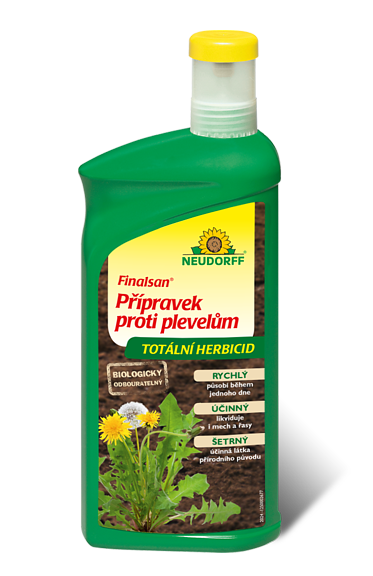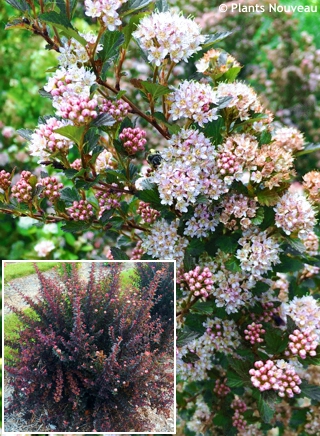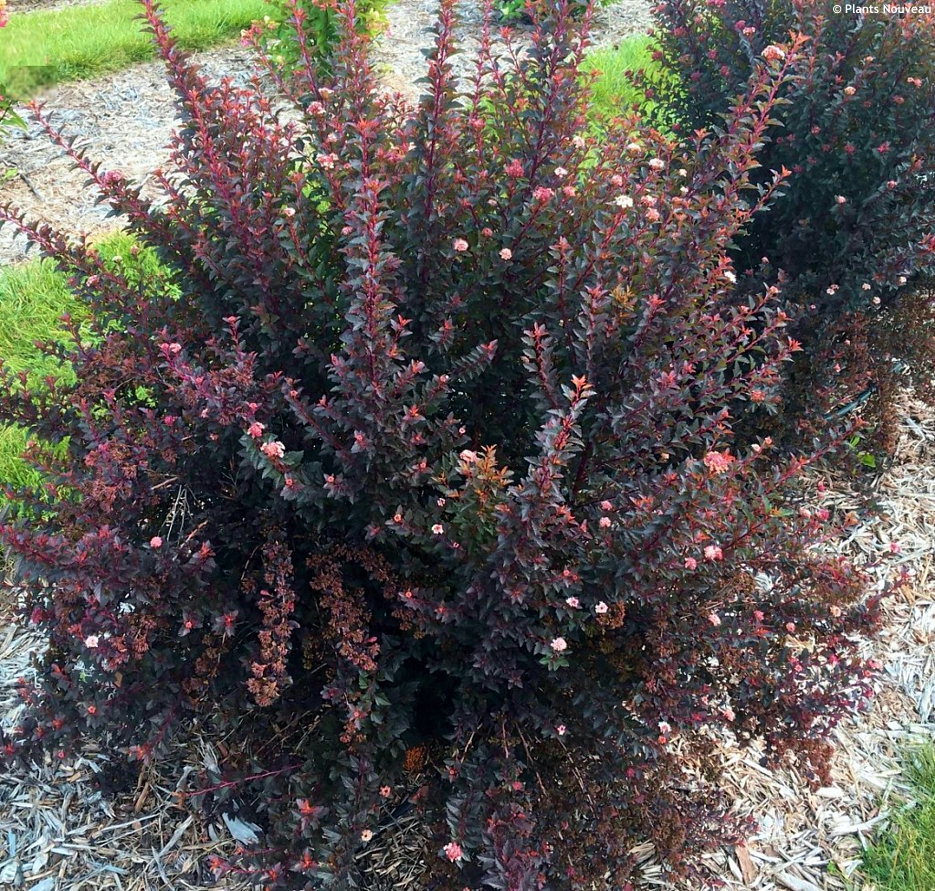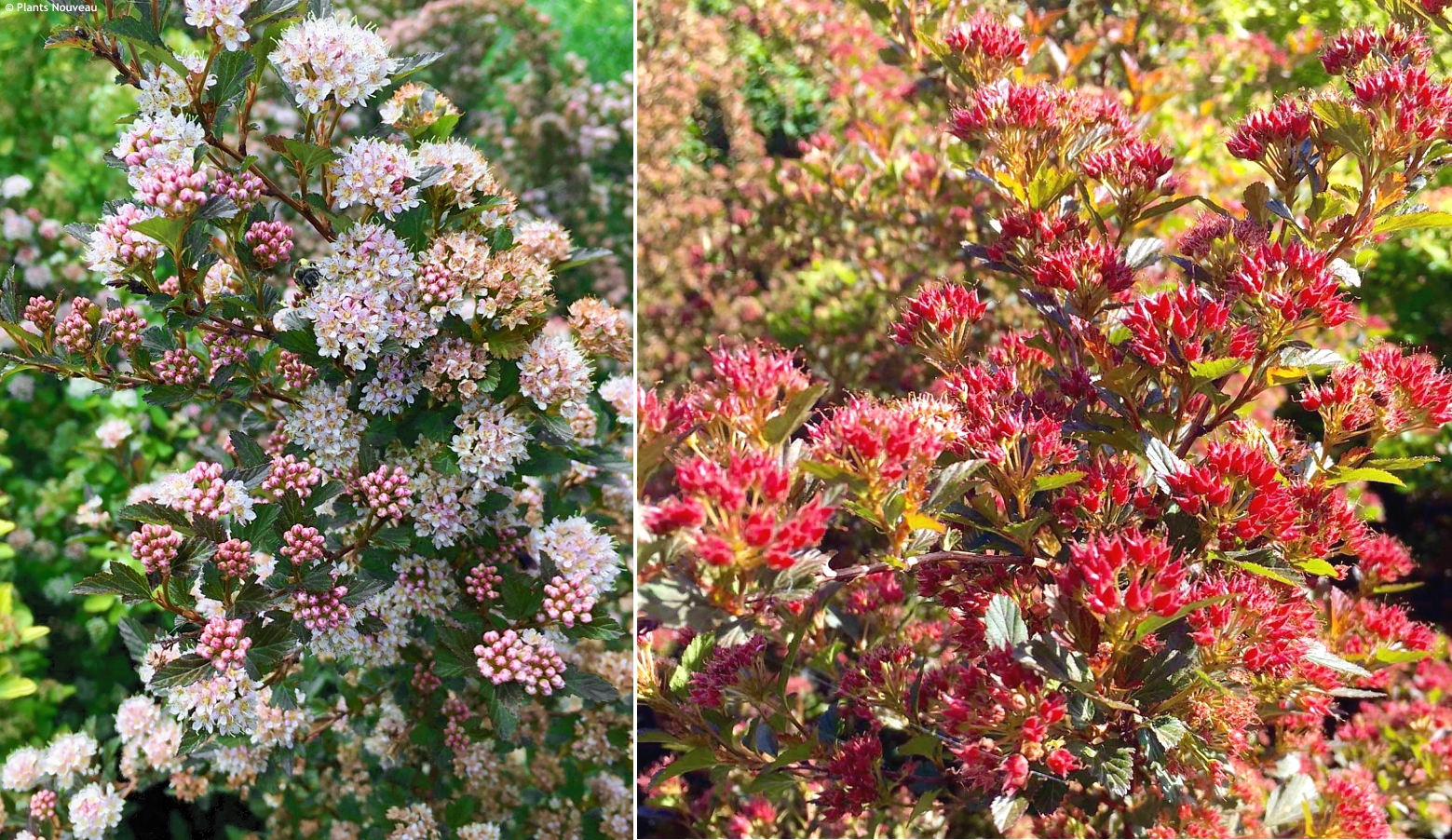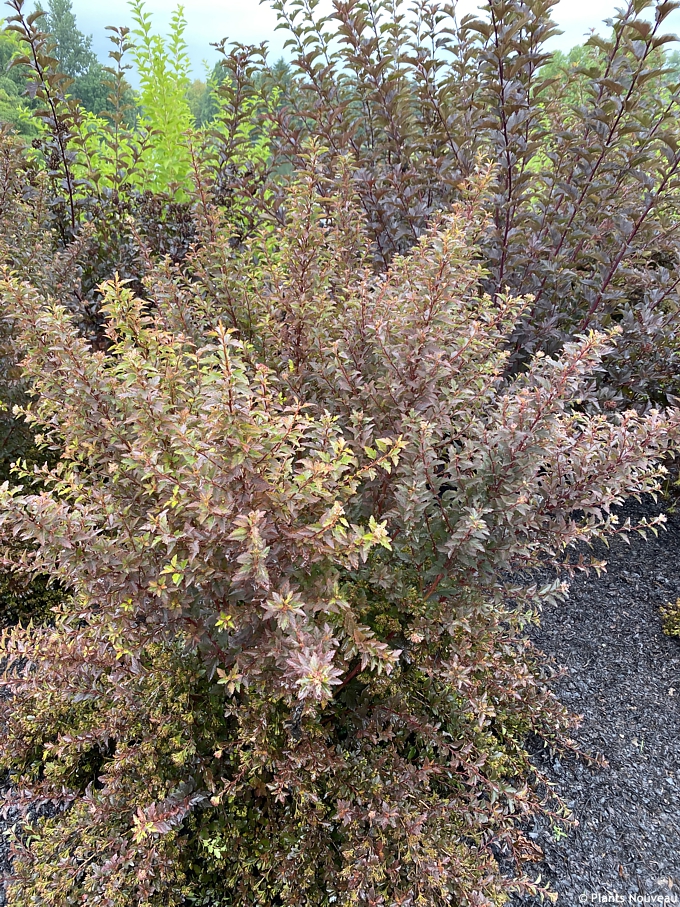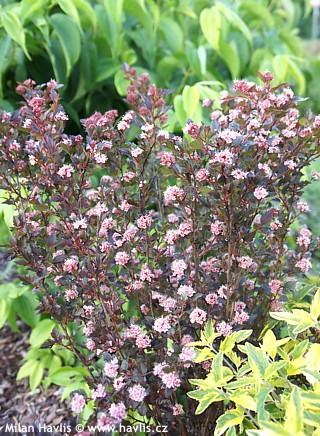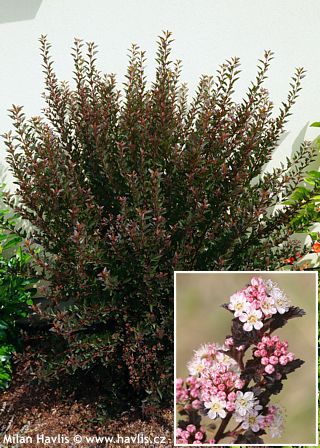Physocarpus opulifolius 'ZLEBic5' SWEET CHERRY TEA™ common ninebark
Physocarpus
Ninebark is a low-maintenance, deciduous shrub of the Rosaceae family from eastern North America, available in several varieties offering a range of leaf colours and habits. In the new millennium there has been a number of new selections found as natural mutations or crossings which enriched the range of these popular hedging plants.
David Charles Zlesak is an American professor of horticulture at UWRF (University of Wisconsin - River Falls), which is located in USDA zone 4b, which corresponds to a minimum winter temperature of -32 °C. The plants that are bred and cultivated there are therefore much more hardier than what the Central-European continental climate requires. Among other things, Professor Zlesak is dedicated to breeding especially hardy roses and ninebarks, of which he already has quite a few. Six of them were granted a patent protection, including the most famous variety LITTLE DEVIL™ from 2010, which won the Garden Idol of 2011 award from the American Nursery Landscape Association.
SWEET CHERRY TEA™ belongs among compact to dwarf ninebark varieties with one extra trait: it re-blooms in summer. Its deciduous leaves are small, conspicuously serrated (notched) at margins, and three-lobed like, for example, fire maple leaves. In early spring they emerge bright red with orange hues and mature to a rich maroon purple, while the leaves inside the shrub with limited sunlight are dark green tinged purple-brown. In autumn they turn bright purple red.
In late spring appear small corymbs composed of soft pink buds which burst into almost white, pink-tinged, highly melliferous flowers, followed by bright red fruits that look like tiny jewels. And now comes the surprise: from mid-summer, the flowering repeats at the tips of the new twigs.
SWEET CHERRY TEA™ ninebark grows moderately fast and thanks to its upright stems it forms nicely symmetrical and extremely dense shrubs with a fine texture of small leaves. Its height and width are around one meter with a slightly higher height, but the size can vary with the quality of the soil. The variety is protected by the US patent PP31235 from 2019, and the European one is pending from 2021 (reg. No. 20211972).
In autumn the shrub shows another handsome feature which gave this plant its name ninebark: peeling-off bark in strips on older stems. It looks especially attractive on a sunny winter day against a background of fresh snow. Dark-coloured varieties provide the best contrast in hedges with yellow- or light-green-leaved shrubs and vice versa. Ninebarks combine well with other deciduous broadleaved shrubs producing coloured foliage or flowers such as weigelas, viburnums, etc. These colourful hedges and screens may not be suited to all types of landscape so consider your project wisely as to whether you really want a firework of colours rather than a subtle setting with plants of one type or one colour only.
Ninebarks are so easy to grow. They take any soil, pH and location. The root system is so sturdy it can easily grow through heavy clay that will provide nutrients for a fantastic plant. They even cope well with compacted ground that tends to get waterlogged after the rain. On the contrary, once established they do not require extra watering and sit still until the next rain. Location in full sun will enhance the leaf colour and shrub uniformity. Pruning is a key to the best-looking plants as it ensures regular rejuvenation: prune back 60-80% of all branches every other year after the flowers have set fruits. Best done in early spring before the plant wakes up, or any time during winter but you will lose the sight of peeling-off trunks. Fully hardy to about -45°C (USDA zone 2), and suitable for outdoor pots.
Last update 25-11-2023






























